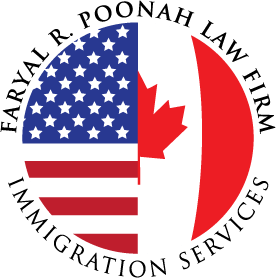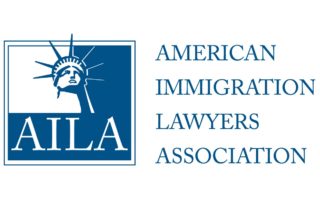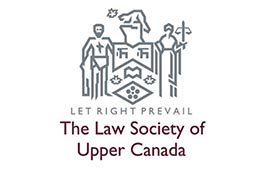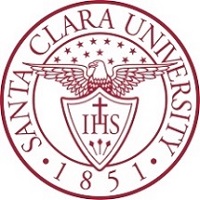Agri-Food Pilot Program
Agri-Food Pilot Program
The Agri-Food Pilot provides a pathway to permanent residence for experienced, non-seasonal workers in specific industries and with specific occupations in the agri-food sector that have a labour shortage. While waiting for a final decision of permanent residence, applicants can apply for a work permit and family members can apply for an open work permit (subject to certain requirements), so they are able to accompany the applicant. The pilot was launched in May 2023 and was extended through to May 2025.
New Changes as of February 10, 2024
As of February 10, 2024, Immigration, Refugees, Citizenship Canada have made changes to the program:
- applicants who reside in Canada when they submit their application may now choose to meet eitherthe job offer requirement or the educational requirement
- we now count work experience gained under an open work permit for vulnerable foreign workers towards the work experience requirement
Who Can Apply?
- You must meet or pass the educational requirements
If you reside in Canada when you submit your application, you may choose to meet this requirement or the job offer requirement. - have eligible work experience
- meet or pass the language requirements
- prove you have enough moneyto settle in Canada (if applicable)
- have maintained your temporary resident status (if already in Canada)
Job Offer
If you reside in Canada when you apply, you may choose to meet either the job offer requirement or the educational requirement.
If you reside outside of Canada when you apply, you must meet both the job offer and the educational requirement.
The job you’re offered must be a genuine job offer and meet all of the following requirements:
- The job must be
- in an eligible occupation listed under 1 of the eligible industries
- full time — This means you work at least 30 paid hours per week.
- non-seasonal — This means you have consistent and regularly scheduled paid employment throughout the year.
- Permanent — This means there is no set end date.
- in Canada, outside of Quebec
- For unionized positions, the wage must be determined by the applicable collective agreement.
- For non-unionized positions, the wage must meet or exceed the Job Bank’s prevailing (median) wage for the occupation listed on your job offer in the province of employment (or at the national level if no provincial rate is available).
Educational requirements
If you are residing in Canada when you apply, you may choose to meet either the educational requirement or the job offer requirement.
If you are residing outside of Canada when you apply, you must meet both the educational requirement and the job offer.
You must have at least
- a Canadian high school diploma or
- an educational credential assessment (ECA) report from a designated organization or professional body showing that you completed a foreign credential at the secondary school level or above
- The ECA report must be less than 5 years old on the date of your application.
- The original ECA report must have been issued on or after the date the organization was designated.
Work experience
Your Canadian work experience must be
- at least 1 year of cumulative, non-seasonal, full-time work in the past 3 years (at least 1,560 hours)
- in 1 or more of the eligible occupations listed under 1 of the eligible industries
- gained though
- an open work permit for vulnerable workers or
- a work permit issued on the basis of a labour market impact assessment (LMIA) with a minimum 12-month duration, under the Temporary Foreign Worker Program
If you’re not sure of the duration of the LMIA that was submitted by your employer when hiring you, you can ask the employer.
Proof of work experience includes:
- an employer or union reference letter (only for unionized positions)
- a letter of employment
- a T4
- paystubs
Open Work Permits
If you currently have an open work permit, but you used to have a work permit through the Temporary Foreign Worker Program, you may have eligible work experience.
However, any work experience you gained while holding an open work permit does not count unless it was gained under an open work permit specifically for vulnerable workers.
How to calculate your hours of work experience
- Do count the hours worked in full-time jobs
- The hours can be in different eligible occupations and with different employers.
- The hours must have been worked over a total period of at least 12 months (Note: working more than 30 hours per week does not shorten this period).
- Don’t count
- hours you weren’t paid for (volunteering or unpaid internships)
- hours worked when you were self-employed
- hours worked in part-time or seasonal positions
- hours where your work was not authorized by IRCC
Language requirements
You must prove your ability in English or French.
The minimum language requirements are Canadian Language Benchmarks (CLB) or Niveaux de compétence linguistique canadiens (NCLC) Level 4 in :
- reading
- writing
- speaking
- listening
You must submit your results from an approved language test and they must be less than 2 years old (2 years from the date you took the test) when you apply.
Settlement funds
You must prove that you have enough money to settle in Canada. You’ll need to prove that you have enough funds to support yourself and any family members you may have, even if they’re not coming to Canada with you.
If you’re already working in Canada with a valid work permit when you apply, you don’t need to provide proof of settlement funds.
Find out more about settlement funds
Language Testing
How to prove your language ability
To prove your language skills in English or French, you need to take an approved language test. To do this:
- schedule your test with an approved agency
- pay the test costs
After you get the results of your test, compare them to the charts below to see what Canadian Language Benchmark (CLB) level you have.
What to include in your application
If you meet the minimum score of CLB 4 in all 4 abilities, include a copy of the test results with your application.
These results must be less than 2 years old when you apply. Keep a copy of them for your records and future use.
Which Language Tests are Accepted?
You can take any of these approved language tests:
English
- CELPIP: Canadian English Language Proficiency Index Program
- You need to take the CELPIP-General test.
- IELTS: International English Language Testing System
- You need to take the IELTS General Training test.
- PTE Core
French
To apply to the Agri-Food Pilot, you need to have experience in an eligible industry and an eligible occupation
- show eligible work experience in an eligible industry and eligible occupation
- have a job offer for full-time, non-seasonal work in an eligible industry and occupation in Canada (outside of Quebec)
- If you reside in Canada when you submit your application, you can choose to meet either the job offer requirement or the educational requirement.
Eligible industries
Industries are classified by the North American Industry Classification System (NAICS). You can see specific industry definitions by searching the industry codes below on the NAICS website.
Your employer needs to include the industry code in your job offer.
Eligible industries under the pilot are:
- meat product manufacturing (NAICS 3116)
- greenhouse, nursery and floriculture production, including mushroom production (NAICS 1114)
- animal production, excluding aquaculture
- cattle ranching and farming (NAICS 1121)
- hog and pig farming (NAICS 1122)
- poultry and egg production (NAICS 1123)
- sheep and goat farming (NAICS 1124)
- other animal production (NAICS 1129)
Eligible occupations
Occupations are classified by the National Occupational Classification (NOC) code. You can check the duties for each occupation by searching the NOC website.
Eligible occupations for each eligible industry are listed below.
Eligible occupations for meat product manufacturing (NAICS 3116)
- NOC 63201 – Butchers – retail and wholesale
- NOC 65202 – Meat cutters and fishmongers – retail and wholesale
- NOC 94141 – Industrial butchers and meat cutters, poultry preparers and related workers
- NOC 82030 – Agricultural service contractors and farm supervisors
- NOC 84120 – Specialized livestock workers and farm machinery operators
- NOC 85100 – Livestock labourers
- NOC 95106 – Labourers in food and beverage processing
Eligible occupations for greenhouse, nursery and floriculture production, including mushroom production (NAICS 1114)
- NOC 82030 – Agricultural service contractors and farm supervisors
- NOC 84120 – Specialized livestock workers and farm machinery operators
- NOC 85100 – Livestock labourers
- NOC 85101 – Harvesting labourers
Eligible occupations for animal production, excluding aquaculture (NAICS 1121, 1122, 1123, 1124 and 1129)
- NOC 82030 – Agricultural service contractors and farm supervisors
- NOC 84120 – Specialized livestock workers and farm machinery operators
- NOC 85100 – Livestock labourers
- NOC 85101 – Harvesting labourers
Annual application limits
IRCC will process a maximum limit of 2,750 applications each year and will no longer use annual limits for individual occupations.
Starting on January 1 of each year, applications will be processed on a first-come, first-served basis.
If an application is rejected because the annual limit has been reached, applicants will receive a refund of their application fees.
Work Permit
Applicants may apply for a work permit while they wait for a final decision on their application. In addition, family members may apply for an open work permit, no matter what their skill level is.
TEER 2 or 3 Occupations
- Your family members can apply for an open work permit if these 3 requirements are met:
- You applied for permanent residence through the Agri-Food Pilot.
- Your work permit is still valid for at least 6 months when we receive your family member’s open work permit application.
- Your family member is eligible for a work permit.
TEER 4 or 5 Occupations
- Your family member can apply for an open work permit if these 4 requirements are met:
- You applied for permanent residence through the Agri-Food Pilot.
- You received an acknowledgement of receipt letter.
- Your work permit is still valid for at least 6 months when we receive your family member’s open work permit application.
- Your family member is eligible for a work permit.
Family members must apply for an open work permit. They can do so outside Canada, inside Canada or at a port of entry. Instructions on how to apply may be found here: https://www.canada.ca/en/immigration-refugees-citizenship/services/work-canada/permit/temporary/apply.html
Priority Processing for Work Permit Applications
If your occupation is one which IRCC deems as “performing or supporting essential services”, your work permit will be prioritized. Certain agriculture and agri-food occupations are considered essential services, including the following:
- Butchers – retail and wholesale (NOC 63201)
- Meat cutters and fishmongers – retail and wholesale (NOC 65202)
- Agricultural service contractors and farm supervisors (NOC 82030)
- Livestock labourers (NOC 85100)
- Specialized livestock workers and farm machinery operators (NOC 84120)
- Harvesting labourers (NOC 85101)
- Nursery and greenhouse labourers (NOC 85103)
- Fish and seafood plant workers (NOC 94142)
- Labourers in food and beverage processing (NOC 95106)
- Labourers in fish and seafood processing (NOC 95107)
- Industrial butchers and meat cutters, poultry preparers and related workers (NOC 94141)
FREQUENTLY ASKED QUESTIONS – FAQ
Yes, an immigration lawyer can assist with provincial nominee programs (PNPs) in Ontario. They can guide you through the specific requirements of Ontario’s PNP, helping you understand the criteria, preparing your application, and maximizing your chances of nomination for permanent residency.
It’s essential to consult with an immigration lawyer in Ontario for personalized guidance on your specific immigration needs and circumstances.
Immigration lawyers in Ontario offer various services, including evaluating your eligibility, preparing and submitting applications, representing you in immigration hearings or appeals, and providing legal advice throughout your immigration journey.
When selecting an immigration lawyer in Ontario, consider their experience, specialization in immigration law, and track record of successful cases. It’s also essential to ensure they are licensed and in good standing with the relevant legal authorities.
Hiring an immigration lawyer in Ontario is beneficial because they possess in-depth knowledge of Canadian immigration laws, policies, and procedures. They can help you understand your options, prepare your applications correctly, and navigate the complex immigration system, increasing your chances of success.
An immigration lawyer in Ontario specializes in Canadian immigration law and provides legal assistance to individuals and families seeking to navigate the immigration process. They offer guidance on various immigration matters, including visa applications, permanent residency, work permits, family sponsorships, and legal representation in immigration proceedings.
There are several categories for which you can apply to work in the U.S. This is dependent on your skills, education and work experience. For example, there are several non-immigrant, temporary visas, such as H-1B Specialty Occupation, or L-1 Intra-company transferee. There are even immigrant work visas that can be obtained through a labor certification, or if you are a individual who has extraordinary ability.
The minimum investment amount depends on whether you are investing in a targeted employment area (TEA) or not. For TEA investment, the amount is $900,000 and if you invest in non-TEA, the minimum investment amount is $1.8 million
Yes. Marriage Based sponsorship is available to both U.S. citizens and U.S. green card holders; however, the processing times may be longer if your spouse is not a U.S. citizen.
No. K-1 visas are specifically for fiancés who are residing outside of the U.S. and eventually come to the U.S. to get married. The fiancé enters the U.S. on a temporary visa and then the couple has 90 days to get married.
A “Green Card” is the other term for permanent resident card. It allows you to live, work and study in the U.S. permanently. There are multiple ways you can receive a green card, some of which include family sponsorship, employment, diversity visa or asylee
No. Express Entry is an online management system that Immigration, Refugees, Citizenship Canada (IRCC) uses to rank potential candidates against one another
Technically, there is no minimum threshold. However, by looking at scores for 2020, CRS scores have ranged from 471-478 for FSW, FST average is 450 and CEC is 415. In addition, there are Provinces who actively pick candidates from the Express Entry pool (Nova Scotia, Ontario) and if they are within the parameters being targeted, the CRS score is much lower.
Anyone with a bachelor’s degree or higher should consider applying; however, those between the ages of 20-29, with a master’s degree / PhD, plus 3+ years of work experience will generally be the most competitive
PNP Nominations are issued by the Province to candidates who have the required skills and experience targeted by the Province. PNP nominations add 600 points to your overall CRS score and will give you enough points to guarantee that you will be picked from the Express Entry pool and receive an Invitation to Apply
Alberta has typically been one of the easiest Provinces because the minimum CRS score was around 300. However, since the COVID-19 pandemic, they are only choosing candidates who already reside (work, school) in the Province. Saskatchewan also has a PNP program where candidates do not require a job offer, but candidates must score high enough on the Province’s score criteria. Ontario is the most active PNP and has targeted occupations where the CRS score is around 450 and a job offer is not required. We may explore other Province’s depending on your specific skills and experience.
Most, if not all Pathways require language testing, with their own requirements. Generally, Federal Programs have higher minimum language score requirements, while Provincial Nominee Programs (PNP) and Pilot Programs are lower. For example, each of the (3) Federal Express Entry programs do require language tests and each has its own Canadian language benchmark (CLB) requirement. Once you determine which program you are eligible for, you determine if you have the minimum language scores. Under the FSWP = NOC 0, A, or B, with a CLB 7 (6 in each area), CEC = NOC 0, A, with a CLB 7, NOC B, with a CLB 5, and, FST = Speaking/Listening = CLB 5, Reading Writing = CLB 4. On the other hand, non-Express Entry PNP’s typically require a minimum CLB of 4 (Saskatchewan, Alberta, etc). The higher the language scores, more competitive you will be in the pool.
Yes. So long as your Express Entry CRS scores are high enough, you do not need a job offer. A job offer may be difficult to obtain if you are not in Country. Essentially, a job offer is recommended if your CRS scores are too low to qualify you for the Federal Skilled Worker program.
Testimonials

Highly professional staff that will provide you with personalized assistance. Extremely knowledgeable with all immigration options. Assisted us with family-based petition and made the process seamless. I would highly recommend their professional services!

Amazing to work with. Always available to answer questions and dealt with all hurdles and obstacles to retain my immigration status. Was able to meet deadline to file case efficiently and quickly. If you want your case to be treated with priority and dedication, let Poonah Immigration Law Firm help you!

I cannot recommend this law firm enough. In my time of need, they were there to provide the best legal advice to help me. I owe my peace of mind to them and I am highly grateful. If you are looking for a well-rounded law firm, this law firm is for you!
Affiliations











